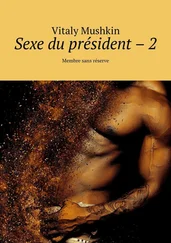For a while, however, the couple worked hard to find ways to remain committed. Frank Snr not only behaved responsibly in his role as the familyâs sole breadwinner, but also invested a fair amount of effort into trying to make what little time he shared with his wife and son seem reasonably worthwhile. Edith, for her part, bit her tongue on all of the bad days, savoured each one of the few that were good, and buried herself in the business of being both a homemaker and a mother.
It was not just young Francis on whom she would dote. A second son, called Sidney, was born in April 1920, closely followed, in October 1921, by the birth of a baby daughter named Edith Bettina but known to everyone as Betty. Edith adored them all, and, making a virtue out of a necessity, she soon came to relish her role as the familyâs singular parental figure.
As a mother, she gave her children a generous measure of encouragement and affection. A short, slender woman with dark, vaguely âgypsyishâ good looks, discreet but deeply sincere religious beliefs and a quietly cheerful disposition, she made sure that her family had fun, sharing with them her great love of music, humour and the art of make-believe. When she could afford to she would take the children out, and when the money was tight she would stay with them inside, but, wherever they were, she always ensured that they would laugh, play and consider themselves to have been richly and warmly entertained.
Assuming those duties that had been neglected by their absent father, she also instilled a fairly strong sense of discipline in each of her children, and tried to teach them a simple but solid code of conduct. Echoing many of the lessons she had learned from her own father, David (a stern and very strict Scottish Presbyterian), she would always stress the importance of industry, frugality and self-reliance, and insisted on treating others with a proper sense of fairness and respect.
Of all her three children, it was Frank (as he preferred to be addressed) who appeared the one most eager to please her, as well as the one who was most closely attuned to her own personality and point of view. He loved to sit and listen to her singing snatches from all of her favourite musical comedies (âmy first impression of show-businessâ), felt thrilled when she showed so much enthusiasm for any performance that emerged from out of his âidiot world of fantasyâ, and was delighted to find that he shared her âway-out sense of humourâ. 5 In short, he adored her.
Even after he had started attending school â the local Gordon Elementary 6 â and begun to acquire a broader range of friends, potential role models and adult authority figures, this special allegiance stayed as firm and true as ever. He would remain, totally and openly, Edithâs son.
He had never been, in any meaningfully emotional sense of the term, âFrankâs sonâ. Whereas young Sidney and (to a lesser extent) Betty would greet each fleeting visit from their strangely unfamiliar father with a fair degree of enthusiasm and excitement, their older brother never showed any pleasure at being in his presence, regarding him coldly instead as little more than a âgatecrasherâ. 7
When Frankie Howerd came to look back on this formative stage in his life, he would confess that the only thing that he had shared willingly with his father (aside, perhaps, from their fair-coloured hair) was the recognition of âa singular lack of rapportâ. Frank Snr had seemed, at best, âa strangerâ, and, at worst, a rival: âI positively resented his âintrusionâ in the relationship I had with my mother.â 8
He also genuinely resented the emotional pain he could see that his father was causing her. It was hard enough on Edith when the sum total of the time she could hope to share with her husband amounted to no more than two days out of every seven. It was harder still when he was transferred to the Army Educational Corps, and began travelling all over the country, and spending far longer periods away, fulfilling his duties as an instructor and supervisor of young soldiers. 9 These many absences certainly hurt her, but then so too did her husbandâs apparent belief that the mere provision of his money would more than make up for the patent lack of his love.
Even if her eldest son failed to understand fully the intimate nature of the causes, he was mature enough to appreciate the true severity of the effects. His beloved mother was suffering, and his father was the man who was making her suffer.
This alone might have been sufficient to explain the adult Frankie Howerdâs apparent aversion to any mention of his father, but, according to several of those to whom he was close, 10 there was another, far darker, reason for the denial: his father, he would claim, was a âsadistâ who not only used to âdisciplineâ his eldest son by locking him in a cupboard, but also (on more than one occasion during those brief and intermittent visits back to their home in Arbroath Road) subjected him to abuse of a sexual nature. While there is no conclusive proof that this is true, Howerd himself remained adamant, in private, that such abuse really did take place. 11
The story, if one accepts it, certainly makes it hard not to reread the fragmentary autobiographical account of the first decade or so in his life as a coded insight into a profoundly traumatic time. So many tiny details about that âincredibly shy and withdrawn childâ 12 â including a fear of authority that grew so great as to make young Frank appear âconscientious to the point of stupidityâ; an early need to go off on long solitary walks âjust to be alone in my own private, dream worldâ; the unshakeable conviction that he was âugly and useless to man and beastâ; and the longing for a place âin which shyness and nerves did not appear to exist â â seem to fit the familiar picture of someone struggling through the private hell that accompanied such abuse. 13
It also appears telling, from this perspective, that towards the end of this period 14 Frank suddenly acquired a serious stammer. It first started to be noticeable, he would recall, whenever he was âfrightened or under stress, and in an unfamiliar environmentâ: âIâd gabble and garble. Always a very fast talker, Iâd repeat words and run them together when this terror came upon me.â 15
Failing health would gradually diminish any real physical threat posed by Frank Snr. Invalided out of the Army at the start of the 1930s following the discovery of a hole in one of his lungs, 16 he struggled on, increasingly frail and emphysemic, as a clerk at the Royal Arsenal munitions factories until his death, in 1935, at the age of forty-eight. Memories of past threats, on the other hand, would prove impossible for his son to expunge. The real damage had already been done.
When, in 1969, a young journalist had the temerity to quiz Howerd on his feelings about his late father, he merely responded with a slightly too edgy, and therapy-friendly, attempt at a casual putdown: Frank Snr, he muttered, âwas all right . He was away a lot. Look, I didnât let you in here to ask me Freudian questions.â 17 Seven years later, however, there was a far more obvious display of disdain in his autobiography, which all but edited out the father from the story of the sonâs life. In stark contrast to its lovingly lavish treatment of Edith, not one picture of him was included, and no description was provided: aside from the acknowledgement (apropos of nothing in particular) that Frank Snr was âessentially a practical manâ, 18 the only recognition of his fatherâs existence was to underline his absence: âMost people have a mother and father,â Howerd observed, before adding, more with a sigh of relief than any hint of regret: âI seemed to have only a mother.â 19
Читать дальше












